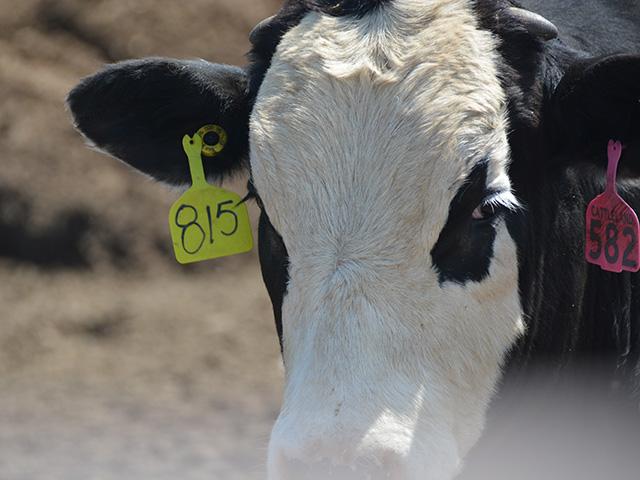Bill Includes Cattle EID Tag Funding
Disease Traceability Is Main Focus for the Need for Cattle EID Tags
REDFIELD, Iowa (DTN) -- Electronic identification tags recently received support of $15 million of funding in the House appropriations package to assist USDA to provide these tags to cattle producers.
Todd Wilkinson, immediate past president of the National Cattlemen's Beef Association, praised government officials for providing this funding to make it more possible for the EID system to move forward.
"It goes a long way to fill a real need if we are going to advance traceability on a legitimate basis," he said. "Having the producer, the cow-calf operator and others shoulder that burden is pretty difficult. The ask from our members and ranchers across the country was so we didn't have to pay for the whole thing."
Many producers have shown concern about sharing their information among government agencies, but Wilkinson said this is not an issue worth fretting over, as the EID information will be protected by the Freedom of Information Act. "The information collected for the tags won't be used for income tax purposes or for counting cattle -- it's for disease traceability," he added. "This will protect beef producers across the U.S. The data points are controlled and not available to other parts of the government."
TRACEABILITY IS MAIN PURPOSE
P[L1] D[0x0] M[300x250] OOP[F] ADUNIT[] T[]
Using EID tags for animal disease traceability is to help find a source of disease and contain that with quarantines and regulations, according to Wilkinson.
"It will protect everyone's herds. What we can't do is have the cattle industry get crippled because of individual states not having the same type of systems in place to be able to deal with a problem," he said.
"This is an insurance policy for producers in areas across the country, so it doesn't shut us down for a long time or cause unnecessary implications on herds that aren't directly affected by a disease."
Wilkinson further explained the use of EID tags as putting a button tag in a cow's ear to identify when an animal leaves the point of origin. This would replace the metal tags currently used that have a unique identification number and use an electronic system that can be scanned to find previous information on the animal. The EID tags don't require producers to do anything different than currently, as a veterinary certificate will continue to be needed for moving cattle.
"We can say we like the system the way it is, but if we look back at the BSE case -- and look at the poultry and pork industries and what they've dealt with -- if you don't think a disease is likely to come in through our borders as easy as it is to get through those borders, then you're burying your head in the sand," he added.
HELP PREVENT SHUTDOWNS
Using EIDs wouldn't put new regulations on producers but rather make it so animals could be tracked more easily to help prevent an industry shutdown during a disease outbreak.
"We aren't talking about millions of dollars; we are talking about billions of dollars. This is going to make other shutdowns look like a cakewalk," Wilkinson said. "America's cattle producers can't afford to be shut down when we have the ability to disseminate this information, project the information and protect America's beef herd."
At the NCBA convention in February, delegates passed policy to support a voluntary national traceability system that is industry-driven with tags and reads paid for by state or federal funds.
The Consolidated Appropriations Act 2024 (H.R. 1061) included detailed funding for agriculture with $1.162 billion for the Animal and Plant Health Inspection Service (APHIS). This includes $15 million for electronic identification eartags for cattle and bison to improve animal disease traceability. This required a two-thirds vote in favor by the House for adoption; the vote was 339-85. The Senate passed the bill 75-22.
Jennifer Carrico can be reached at jennifer.carrico@dtn.com
Follow her on X, formerly known as Twitter, @JennCattleGal
(c) Copyright 2024 DTN, LLC. All rights reserved.





